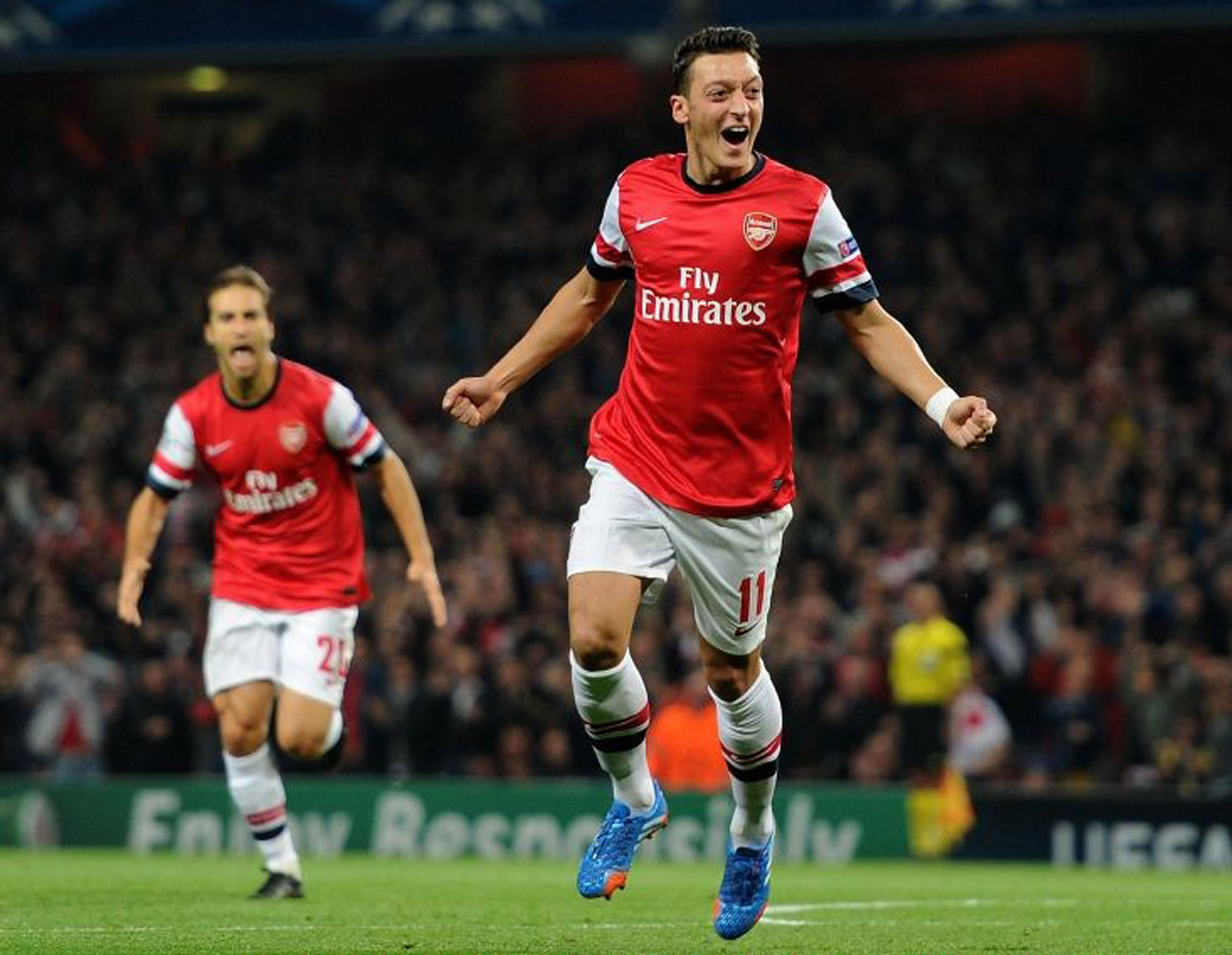Arsenal find secret to their past success
After their best start to a Premier League season in nine years, a rejuvenated Gunners may just have hit upon the right formula to end their trophy drought

For Arsène Wenger, this has been a little too long coming. So much so that, when asked on Friday whether Arsenal are capable of a first title challenge since 2008, he couldn't help adding a caveat to his own utter conviction.
"We were in a position where we could win the League four, five years ago and we didn't. I think we have the quality and it's down to consistency."
There's no denying that there is a conspicuously different feel around the club. It is not just that Arsenal have ground out their best start to a season since 2004-05, when they were still perpetuating that 49-game unbeaten run. It is that, during the last few games, some of their football recalled the unplayable, red-arrows movement of the Invincibles. That, more than the short-term vagaries of any run of results, seemed to point to a potential long-term effect.
All of which gives rise to two questions. One, what is different beyond the signing of one star? Two, is it all actually sustainable?
More than a major signing
For many, it has been rather simple. When you buy world-class attackers of Mesut Özil's quality, you'll generally get world-class attacking football, not least for the lift such a purchase gives everyone. The German appears to have had an identical effect on Arsenal as Robin van Persie did on Manchester United last season. Even the extra energy of the Dutch forward, however, started to wane around February.
There are a few reasons why Özil's signing may yet be doubly if not trebly positive. Before he signed, as Wenger mentioned, Arsenal had not sold anyone significant. It meant that, for probably the first time since the summer of 2004, the squad has kept steady underneath and been improved on top. There were no sales to cover for, no negatives to offset. It was finally a full step forward, all the more so because the player signed was someone of Özil's class.
That could also be seen in the football. The German was not stepping into a restructured team forced to rediscover itself, but one already integrated. So, when Özil decided to drift against Napoli on Tuesday, Aaron Ramsey knew exactly where to fill in.
"I believe we have a good mixture of young British players who have been educated here," Wenger said. "If you look well, I think every successful club has four or five players who are really homegrown."
That fluency will likely remain, even if the excitement around a new signing does not.
Old names, new games
It is not just that the core of the side already know each other so well. It is that so many of them are now producing the kind of output that would have been wanted from notionally superior signings. Olivier Giroud has so far offered a goal ratio similar to Gonzalo Higuain; Ramsey a different dimension from midfield. Wenger has already spoken at length about the French striker and how he was expected to keep up a pattern of greatly improving in his second season at the club, even if the manager still intends to complement his forward line in January.
"I think you should continue to talk about that [a new signing] because it looks to stimulate Giroud unbelievably well," Wenger laughed.
With Ramsey, club sources have pointed to something deeper. Many have said that the player taking this season by storm was evident in training over the last year, but couldn't seem to reach that level competitively. They put it down to settling psychologically while also working in the gym.
Arsenal have also added physicality in another way – Mathieu Flamini. Wenger admitted "hesitations" over whether to re-sign the French midfielder, but Flamini's willingness to reject other offers was sufficient persuasion. It is not just enthusiasm he offers.
"He is someone who accepts to do the dark role in the team and that's of course what you need for the balance," Wenger explained. Many at London Colney have said the group was too "nice" after Cesc Fabregas left, that they lacked a competitive nastiness. It was something also alluded to by the manager.
"We looked, a little bit sometimes in the big occasions, afraid defensively and [Flamini's aggression] gives us something more."
A forgiving start
Of course, there can be no denying that Arsenal have been allowed more time to find that "balance" because of the absence of such big occasions so far – the 1-0 derby win over Tottenham Hotspur has been their only major test in the League. The average 2012-13 position of the other five teams they've faced was 13th. That run itself has had the double effect of affording the team easier-secured wins and allowing so many different elements to gel in more forgiving circumstances.
"Let's see how things go in 10, 12 games," Wenger acknowledged. "An English season is a long season and that consistency in your desire in the end makes the difference."
It will also tell how different Arsenal are.
Arsenal's first six games
Points/Goals/Conceded/Position
2013-14 15/13/7/1st
2012-13 9/10/4/9th
2011-12 7/9/14/13th
2010-11 11/16/7/3rd
2009-10 12/21/10/3rd
2008-09 12/12/4/4th
2007-08 14/15/2/2nd
2006-07 11/7/3/6th
2005-06 9/9/5/7th
2004-05 16/21/7/1st
West Bromwich v Arsenal is on Sky Sports 1 today, kick-off 4pm
Subscribe to Independent Premium to bookmark this article
Want to bookmark your favourite articles and stories to read or reference later? Start your Independent Premium subscription today.

Join our commenting forum
Join thought-provoking conversations, follow other Independent readers and see their replies